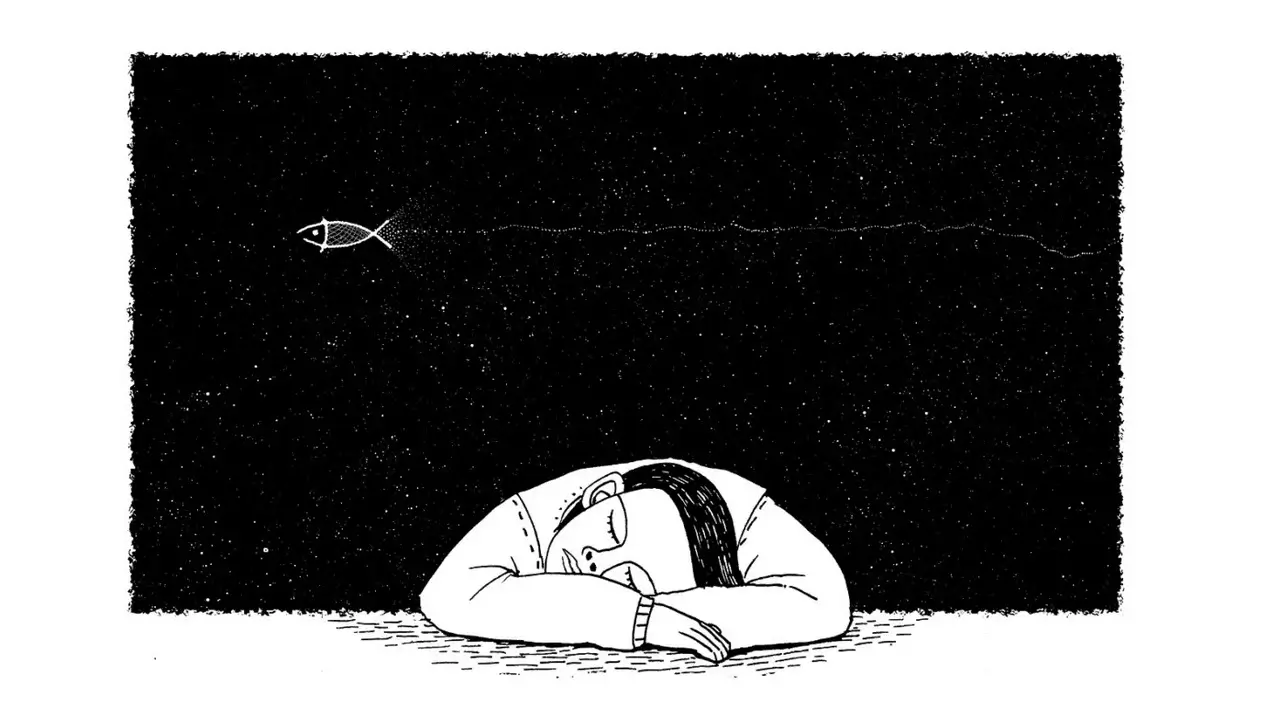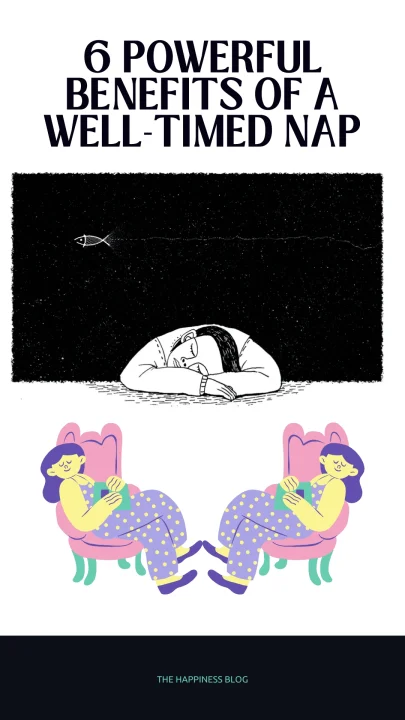Today's Friday • 6 mins read
Why should all of us take a little nap every day?
Naps can do more than just fix our sleep-deprived generation’s doze-deficits.
A short nap isn’t just refreshing—it can boost your focus, mood, and energy levels. And improve memory, reduce stress, and even enhance creativity.
But to get these benefits, timing matters. Nap too long, and you might wake up feeling groggy. Too short, and it won’t be enough to recharge your brain.
Did you know that different nap lengths have specific names?
- Ultra-short nap: 6 to 10 minutes
- Power nap or Catnap: 10 to 20 minutes
- Short nap: 30 to 45 minutes
- Full nap: 90 minutes
So, how long should you nap for optimal benefit?
What Is The Best Nap Length?
For adults, the ideal nap length is 20 to 30 minutes. This keeps you in light sleep, which lets you feel refreshed, alert, and livelier on waking up.
Some recommended nap lengths, according to sleep researchers:
- Less than 30 minutes – Best for boosting creativity, productivity, memory, and mood.
- 10 to 20 minutes – A great daily nap length for most people.
- 6 minutes – Even ultra-short naps can enhance memory, research suggests.
- 90 minutes – This full sleep cycle allows you to reach REM sleep, which improves emotional processing, memory consolidation, and problem-solving.
A nap longer than 30 minutes can make you enter the deep sleep phase, which can cause sleep inertia—the sleepy, sluggish, disoriented feeling immediately upon waking from a nap.
In the elderly, a long and unplanned daytime nap could contribute to higher cardiovascular risk (Faraut & Andrillon, 2017).
So, keep naps under 30 minutes. But if you have time, you can go for a 90-minute nap, and complete a full sleep cycle, including REM (dream-phase) sleep.
For best results, especially for older adults, experts suggest napping between 1 and 4 p.m.

6 Powerful Benefits of A Well-Timed Nap
A nap is not just some catch-up sleep; it can do more. Even if you’re getting a good night’s sleep:
- A daily nap can reduce stress, improve emotional resilience, and make life more enjoyable.
- A short daytime nap can lift your mood, sharpen your focus, and boost brain performance.
Studies show that even 30 to 90 minutes of napping can boost memory. People who napped could recall words and information better than those who didn’t.
Here are six powerful reasons to make well-timed naps a daily habit:
1. Reduce Heart Attack Risks
A 2020 study from the European Society of Cardiology found that a 30-minute nap could reduce the risk of cardiovascular issues by 10%. And people who skip naps tend to have higher blood pressure.
Companies once frowned upon napping at work, but many now encourage short naps to boost both productivity and heart health. Google offices have sleep pods to let employees take quick naps.
So, if you’re feeling drained, don’t push through at the expense of your heart—take a short, restorative nap instead.
2. Boosts Alertness & Happiness
Fatigue is a danger in jobs that require constant vigilance, such as truck drivers and pilots. It can lead to serious mistakes via micro-sleeps—brief, involuntary sleep lasting a few seconds to minutes.
Naps can help prevent micro-sleeps and improve alertness.
NASA’s research found that pilots who took a 26-minute nap in the cockpit saw alertness jump by 54% and job performance improve by 34%—a clear case for napping your way to better focus and well-being.
If you’re unhappy or anxious, it might show up as an increased desire to nap. This study found wanting to nap (nap desire) is linked to greater depressive symptoms and anxious moods.
The good news? A well-timed nap can boost mood, productivity, creativity, and emotional control.
3. Eases The Mental Pains
Sometimes, overwhelming thoughts and emotions take over, making it hard to focus or relax. Simply waiting for them to pass isn’t always effective.
A nap can act as a reset button, giving your mind the break it needs.
However, if racing thoughts or emotional distress keep you from sleeping, and exhaustion becomes overwhelming, please seek professional support.
4. Helps Manage Burnout Better
Many think burnout is just about working too many hours, but it’s also about stress, workload, and lack of social support.
Naps can be a powerful tool in preventing burnout.
A 2015 study in Personality and Individual Differences found that a 60-minute midday nap can help a person better control their impulses. The study said that nappers could tolerate frustration better than those who did not nap.
So, if you’re given to reacting impulsively, get a habit of daily short nap to reset your emotions. A well-timed break can give you the clarity to see your challenges from a new perspective.
5. Speeds Up Muscle Recovery
Experts consider sleep deprivation as the number one factor triggering muscle inflammation and joint pains. During intensive workouts, the muscle fibers break. The body needs rest to rebuild and restructure.
Taking a day off is a technique regularly practiced by all athletes and bodybuilders to allow the body to replenish its “supplies of energy.” At a daily level, you can do that by napping. A nap can boost the recovery of your sore muscles.
6. Strengthens The Immune System
Midday naps may help your body fight infections and reduce inflammation. This study found that even a 30-minute nap can increase immune-regulating molecules, helping the body recover faster.
Sleep and immunity are closely linked. When you’re sick, your body naturally demands more rest to fight infections. In turn, good sleep strengthens the immune system, helping it work efficiently and keep inflammation in check.
A study found that quality sleep during an infection enhances the body’s defense, while chronic sleep deprivation leads to low-grade inflammation, raising the risk of illness.
Lack of rest also disrupts metabolism, weakens brain function, and lowers overall performance. Of all the nap benefits, this one might just add years to your life.
As per this Reuters report, researchers at the University of Paris, Sorbonne confirm that sleep deprivation weakens the immune system—yet another reason to make napping a habit.

Final Words
Researchers found that people with conditions like obesity, high blood pressure, diabetes, depression, and anxiety are more likely to nap than those without (Léger & Torres, 2019). This might suggest that the mind craves rest when the body needs to heal.
Sometimes, a well-timed daytime nap is the smartest thing to do, so give yourself permission to rest and recharge.
Find a quiet spot, wear a sleep mask, put on earphones with brown noise, and take a power nap—your brain will thank you.
The book, Take A Nap! Change Your Life, puts it beautifully:
“Imagine a product that increases alertness, boosts creativity, reduces stress, improves stamina, and strengthens memory. Now imagine that this product has no side effects and is completely free. This miracle drug is, in fact, the nap: the right nap at the right time.”
√ Also Read: 6 Sleep Hacks From Science (Quiz: Your Sleep Quality Score)
√ Please share it with someone if you found this helpful.
» You deserve happiness! Choosing therapy could be your best decision.
...
• Disclosure: Buying via our links earns us a small commission.